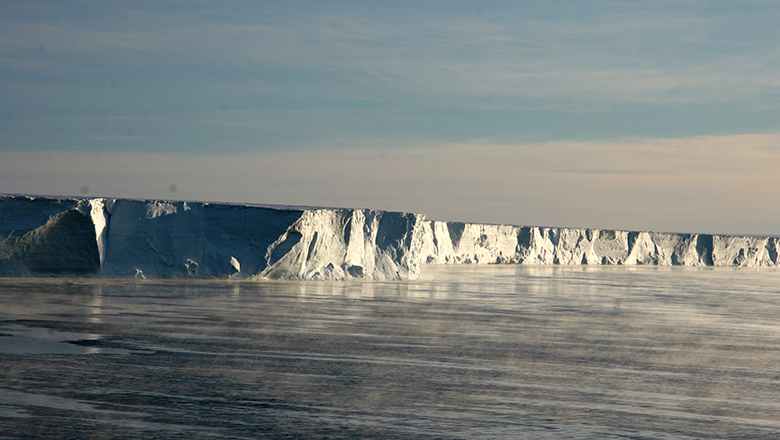London, UK…New climate models from King’s suggest that future sea level rise could be much lower than previously feared but more severe weather may be in store over the next 100 years. This conclusion is made in two pieces of research from King’s College London, Victoria University of Wellington, and colleagues across the US, Canada, UK and Europe.

The first piece of research suggests that sustained collapse of Antarctic ice-cliffs, caused by rising global temperatures and melting ice shelves, may not have a large impact on sea level rise. This means that controversial predictions made in 2016, which claimed that this type of collapse could add more than a metre to rising seas by 2100, may be substantially over-estimated.
Dr Tamsin Edwards, Lecturer in Physical Geography at King’s College London, who led the work, says: ‘We looked in detail at ice-losses 3 million years ago, 125,000 years ago, and over the last 25 years, and found that these ice-cliff collapses aren’t needed to reproduce sea level rises in the past.
‘This suggests that they might not be an important feature in predicting sea level rises in the future.’
By reassessing previous predictions and removing unstable cliff collapse from their calculations, they predict that it is unlikely that melting from the Antarctic will cause sea level to rise more than 39 cm by 2100. This is much lower than previous predictions.
In a second piece of research, led by Associate Professor Nick Golledge from Victoria University of Wellington and co-authored by Dr Edwards, they show that current climate models do not consider the full effect of melting ice sheets in Greenland and Antarctica. It illustrates that the melting will slow the Atlantic ocean circulation, and trap warm water below the surface in the Southern Ocean leading to more Antarctic ice loss. The ice sheet melting also increases temperature variability in both the atmosphere and oceans, which could result in more frequent extreme weather events.
Associate Professor Golledge says: “Melt from these ice sheets is going to significantly disrupt the global climate making temperatures in some areas vary much more from one year to the next. This unpredictability is going to prove extremely disruptive for all of us, and will make adaptation and planning much more difficult”.
Read more at: http://blogs.plos.org/models/polar-thinking/


